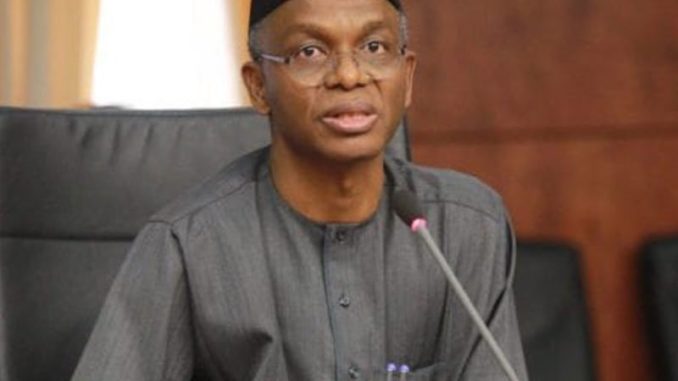
The meltdown last week in Kajuru, Kaduna State, is a crying shame on our dear country. We demand that those in positions of authority should stop the spiral down to narcissism; and save the community before it is too late.
Instead of mourning the tragic deaths of their fellow citizens, in circumstances that should make us all hide our heads in shame, commentators appear more concerned about the ethnic make-up of the dead. That is unacceptable.
Mallam Nasir El-Rufai, the Kaduna State governor, announced that the death toll in the community had risen to 130; and these deaths, in a state not at war with external enemies. The implication is fellow citizens in Kaduna State are killing one another.
Though the governor had appealed to the Fulani, that bore the brunt of the 130 casualty figure, not to resort to reprisal attacks, an earlier casualty figure of 11, mainly of Adara locals of southern Kaduna, seemed to have triggered off the latest bout of killing and maiming. Thus, it would appear, yet again, killings and counter-killings. These periodic orgies of violence are absolutely condemnable.
On February 20, the governor reported the death toll in Kajuru had risen to 130, after the initial announcement of 66. But the Southern Kaduna People’s Union (SOKAPU), the umbrella body of the area’s indigenes, as distinct from the other “Hausa-Fulani” bloc, buffeted the governor for allegedly keeping mute about the Adara 11, only to thunder over the Fulani 66.
SOKAPU alleged the governor was playing a dangerous ethnic game, in the run-up to the crucial general elections. But the governor had retorted that SOKAPU, and allies beyond the community, were playing politics with security matters, adding such alleged blackmail wouldn’t stop him from state duty, as Kaduna’s chief security officer (CSO) – and it shouldn’t.
Unfortunately, however, the latest Kajuru killings mark what has become a murderous routine. In the interest of our common humanity, these blood-letting must stop. It is especially culpable that instead of mourning lost lives which can never be regained, the two blocs are trading blame, in a bizarre tale of complicity and counter-complicity. Such a murky relationship is unhelpful, as the parties need one another to achieve peace in the state. While the constitutionally recognised powers of the governor make him the CSO of the state, such powers become meaningless, if they are not exercised conscientiously. Still, all these questions pale into insignificance, when we appreciate our compatriots are killing one another.
So the governor, after taking measures to douse tension, must seek out why peace has eluded that area of the state. What could motivate indigenes to go after the settlers and vice versa? Are there factors that fuel up the hatred amongst those living in southern Kaduna? If there are, what can the state legitimately do to change the narrative? That will be the only justification to answer a government.
A government turns a farce if it cannot provide the most fundamental essence of its existence – security of lives and property. But citizens too, no matter what, must remember their shared humanity, not to talk of citizenship. In moderating tempers in these challenging circumstances, the governor must tone down on rhetoric, which could be misinterpreted as aiding one side of the dispute. But SOKAPU too must learn to eschew a siege mentality, which reads motives to even the most innocuous of actions. Dwellers of southern Kaduna, indeed, the whole of the country, must learn to live in peace with one another. But the surest guarantor of peace is justice. That is what the government must secure for everyone.
Kaduna State has had enough bloodshed. Those in authority, at the local, state, community, and even religious and social levels, must eschew their differences and work to restore peace, founded on justice. The Federal Government must also support the state to ensure the safety of life and property.
END

Be the first to comment